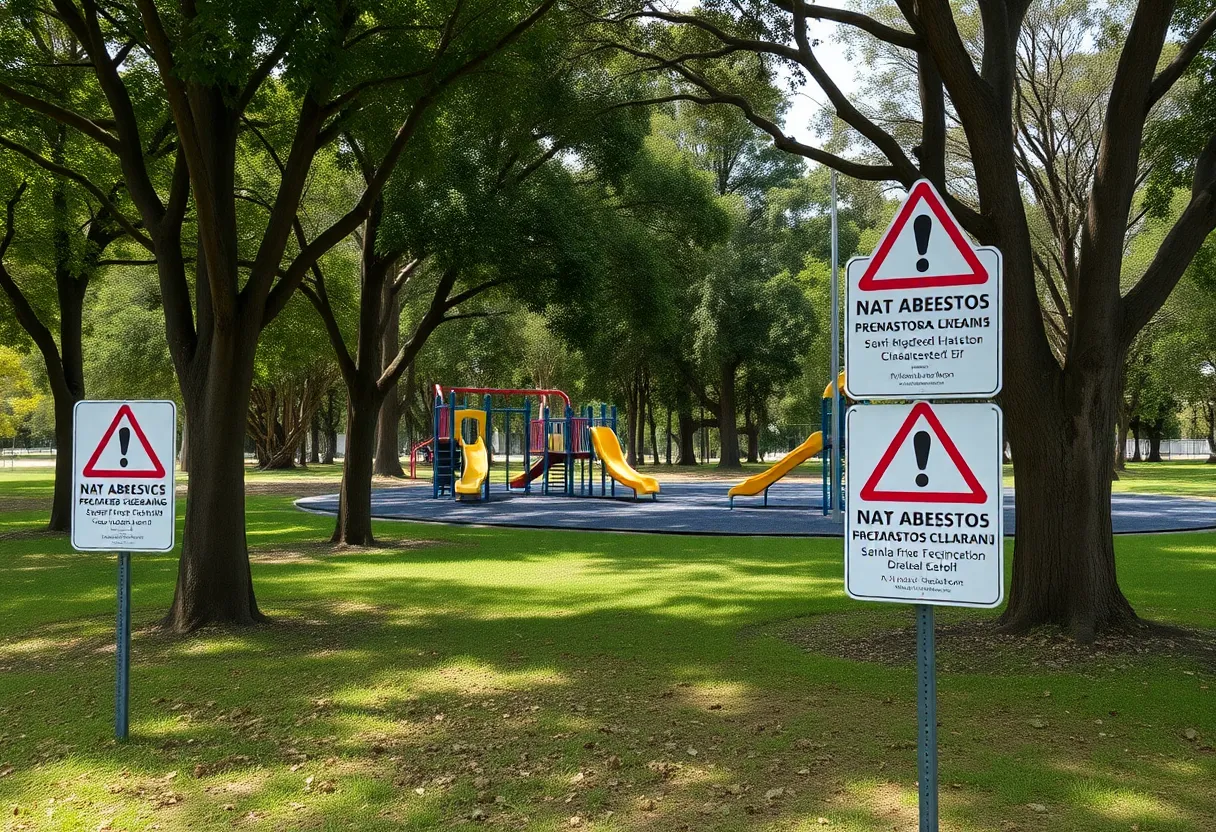News Summary
Asbestos contamination in recycled materials raises serious public safety concerns as scrutiny over New South Wales’ ‘zero tolerance’ policy intensifies.
Concerns Rise Over Asbestos Recycling Practices in New South Wales
As New South Wales grapples with the alarming presence of asbestos in recycled materials, a recent report by the Office of the Chief Scientist & Engineer (OCSE) has intensified scrutiny over current regulatory frameworks. The report, delivered to the NSW Minister for the Environment, Penny Sharpe, on December 11, 2024, offers a critical examination of the state’s “zero tolerance” approach to asbestos regulation, suggesting that this method is ineffective in preventing asbestos contamination in materials intended for beneficial reuse.
Zero Tolerance Under Fire
The OCSE’s nearly 100-page document highlights a significant gap in the existing regulatory system. While the zero tolerance policy aims to eliminate any asbestos presence in recycled waste, the report argues that it has failed to effectively clean hazardous materials from recovered fines—a term describing the approximate 700,000 tonnes of contaminated waste produced each year for landscaping and construction purposes.
Given the serious implications of asbestos exposure—including its well-documented links to mesothelioma and other severe health conditions—the report’s findings raise urgent questions about public safety, particularly concerning the use of these recycled materials in environments like schools and parks.
New Threshold and Recommendations
The OCSE’s proposal to establish a concentration threshold of 0.001% w/w for asbestos aligns with more lenient guidelines from Western Australia. Alongside this recommendation, the report insists on the necessity of developing new guidelines in collaboration with industry stakeholders to ensure safety and compliance moving forward.
Additionally, the OCSE emphasizes the importance of improving detection technologies for identifying asbestos in materials and recommends comprehensive training for workers and professionals who handle asbestos. Such measures are deemed essential for effective asbestos management and to bolster compliance with established regulations.
Funding and Support via Grants
Another significant aspect of the report is its advocacy for increased funding and grants targeting local government programs and research initiatives aimed at developing new technologies for identifying and mitigating asbestos risks. These investments are seen as crucial for enhancing public safety in communities where recycled materials are used.
Public Safety at Risk
The growing unease stems from alarming reports of asbestos fragments detected in mulch spread across public parks and schools in Sydney, underscoring systemic failures in oversight and regulatory compliance. Despite these findings, the Environment Protection Authority (EPA) has yet to prosecute any entities linked to the distribution of contaminated materials, leading to public outcry over regulatory ineffectiveness.
Previous reviews by the EPA have already indicated the inherent complexities and risks associated with managing asbestos within such recycled materials. However, even in light of the current crisis, the system remains unchanged, with the zero tolerance policy still in effect as the government awaits further analysis from the chief scientist.
Calls for Stricter Oversight
The lengthy delays in implementing necessary regulatory changes have fueled criticism toward the EPA and the entire environmental compliance apparatus. Environmental advocates are demanding stricter oversight and operational accountability to prevent future incidences that could potentially expose the public, especially vulnerable groups like children, to hazardous materials.
Moreover, investigations revealing that some laboratories manipulated retesting processes to produce compliant results have raised fears concerning the integrity of environmental testing in New South Wales.
Urgent Need for Change
The alarming findings of the OCSE report, compounded by the discovery of asbestos in places meant for public enjoyment, make it clear that there is an urgent need for reform in the management of recovered fines in New South Wales. With calls for action resonating louder than ever, stakeholders are hopeful that the forthcoming recommendations will pave the way for a more effective, safety-oriented approach to asbestos regulation in the region.
As New South Wales faces significant challenges in ensuring public safety against the risks posed by contaminated materials, the next steps taken by the government and the EPA could well determine the long-term health and safety of its residents.
Deeper Dive: News & Info About This Topic
HERE Resources
The Tragic Journey of Asbestos-Related Illness
BNSF Railway Faces Legal Challenges Over Asbestos-Related Deaths in Libby, Montana
Asbestos Regulation Takes a Historic Turn: EPA Moves to Ban Ongoing Uses
Johnson & Johnson’s Talc Products Face Unprecedented Legal Turmoil
Springfield Properties Faces Asbestos Allegations
Tragic Outcome: West Suffolk Man Falls Victim to Asbestos Disease
Allegations of Asbestos Dumping by Major Scottish Housebuilder Spark Outrage
Major UK Study Targets Asbestos-Related Cancer to Unveil Early Detection
The Ongoing Battle Against Asbestos: A Glimmer of Hope
U-Haul Hit with $231,000 Fine for Serious Asbestos Violations
Additional Resources
- The Guardian: Regulatory Failure in Asbestos Management
- Wikipedia: Asbestos
- The Guardian: Asbestos Crisis in Sydney
- Google Search: Asbestos Regulation in NSW
- The Guardian: Soil Contamination from Asbestos
- Google Scholar: Asbestos Exposure Health Risks
- The Guardian: Waste Companies and Soil Contamination
- Encyclopedia Britannica: Asbestos



















